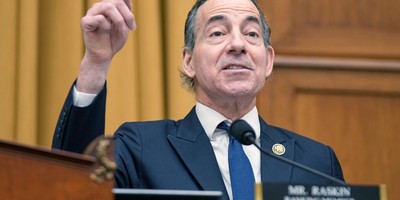Nobel Prize-winning economist Gary Becker was internationally renowned within the economics profession, but was not nearly as well known among the general public as he deserved to be. More important, his path-breaking ideas, including his analysis of the economics of racial discrimination, deserved to be much more a part of the many discussions of that subject.
More than half a century after Professor Becker's landmark work on the economics of discrimination, most controversies on that subject, both in the media and in politics, go on in utter ignorance of his penetrating insights. So do laws and policies that make discrimination worse.
As someone who has written about racial discrimination within the framework of analysis that Becker created, I am especially indebted to him, and wish only that more people were aware of that framework, which could spare us much rhetoric and offer some useful understanding instead.
At a time when there are so many occasions to lament that Milton Friedman is no longer with us, when his knowledge and wisdom are needed more than ever, now we must also lament that the same is true of Gary Becker.
While Becker was an economist's economist, he also transcended the traditional boundaries of economics. He applied the kind of analysis that economists use to subjects that most economists do not usually deal with.
Racial discrimination was just one of those subjects -- at least before Becker came along. He also analyzed family decisions within an intellectual framework ordinarily used for analyzing economic issues, though that did not mean that he thought families were all about money.
The title of a book that he co-authored with his wife, Guity Nashat, indicated something of the scope of the subjects Becker's analysis covered: "The Economics of Life: From Baseball to Affirmative Action to Immigration, How Real-World Issues Affect Our Everyday Life."
Recommended
This book was also a sign of Professor Becker's interest in addressing an audience outside of academic economics. He also wrote a column in BusinessWeek magazine.
Despite the contempt that some economists have expressed toward sociology, Gary Becker went from being a professor of economics at Columbia University to being a professor of economics and sociology at the University of Chicago. No doubt sociology was improved by Becker's contributions.
On a personal note, my path and his crossed a few times at different places. The first time was inauspicious. I was a first-year graduate student at Columbia University and took his year-long course in labor economics.
It was like no other labor economics course I knew about or had heard about -- and there was a reason. He was introducing his own analytical framework that was destined to change the way many issues would be seen by the economics profession in the years ahead.
The unfamiliarity of what he was saying made me skeptical. So I went to the department chairman to get permission to drop the second semester of this year-long course.
He asked my reason and, never known for diplomatic skills, I said, "I am not learning anything." That was true in itself but for reasons the opposite of what I thought at the time. Becker was teaching, and teaching something important, but I just wasn't on the same wavelength.
That became a continuing source of embarrassment to me over the years, after I belatedly grasped what he was trying to get across. This has been filed with a considerable list of decisions I later regretted in the course of a long life.
The next time I encountered Gary Becker was a decade later, during the defense of my doctoral dissertation at the University of Chicago. He was not on the dissertation committee, but sat in on the discussion and could not have been more gracious.
Later Becker became a part-time Senior Fellow at the Hoover Institution, where I was also a Senior Fellow. I could never find the right time or the right way to apologize for my youthful mistake. Now that opportunity is gone. If you owe someone an apology, it is better to do it sooner rather than later.

























Join the conversation as a VIP Member